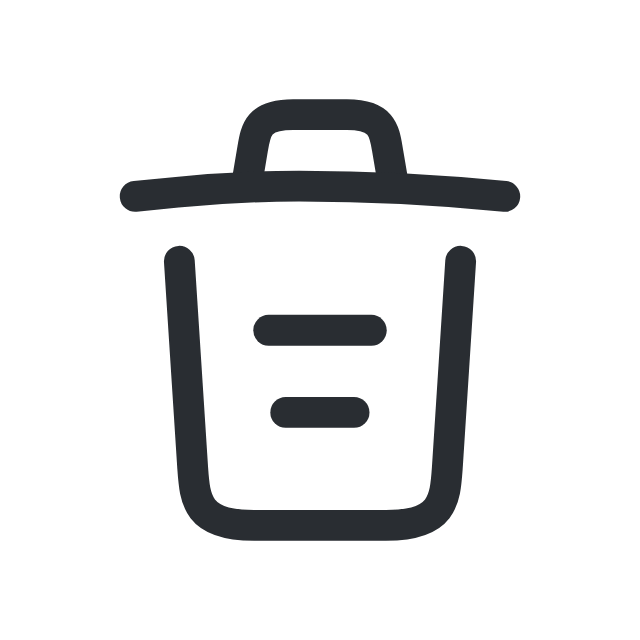Scholarship Tips
As you search for scholarships, asking the questions below will help you determine whether there is a good match between each scholarship program and your circumstances and educational goals.
- What is the maximum scholarship award? Awards can vary considerably, ranging from $100 to $10,000 or more. A typical scholarship award amount is $1,000 to $2,000.
- Is the scholarship one-time only or can it be renewed beyond the initial award?
- Is the scholarship based only on merit (no financial need requirement), or does it require both merit and need?
- How is financial need defined for scholarships that require need? Each scholarship program has its own definition. If you are not able to obtain information about the need criteria and you can't afford to pay for your education without financial assistance, check all of the other eligibility criteria. If there is a good match overall, submit an application and your need will be assessed in the scholarship review process.
- How does the scholarship program define merit? Some scholarships require a minimum grade point average of 3.0 to 3.5 (B to B+) and/or above average college entrance test scores, leadership, and other criteria that are highly competitive, while other scholarships have more flexible criteria and use a more holistic approach to select recipients.
- Does the scholarship require admission to a degree-granting program? This is a common requirement, but some scholarships offer flexibility on admission status and may be available to non-admitted students, certificate-seeking students, and students enrolled in noncredit courses and programs.
- Does the scholarship require full-time enrollment? This is also a common requirement, but some scholarships offer flexibility and may fund students who are less than full-time.
- What are the other eligibility requirements? Is the scholarship targeted to a specific educational institution, specific field of study or major, residents of a specific geographic area, first bachelor's degree, or master's or doctoral level programs?
- Is a personal statement or essay required? This is a common requirement, although it varies by scholarship program.
- Are letters of recommendation required? This requirement varies by scholarship program and is not as common as some of the other requirements.
- Is an interview required? This requirement varies by scholarship program and is not as common as some of the other requirements.
- What is the application process? Many scholarship programs have their own application forms. Some scholarships may be awarded by the financial aid office to students who have completed the Free Application for Federal Student Aid (FAFSA); these scholarships are usually included in the financial aid package. Other scholarships may be awarded by the admissions office to admitted freshmen based on an overall assessment of the admission application. These scholarships may not require a separate application.
- What is the application deadline? Scholarship deadlines can be six to nine months preceding the start of the academic year, while others may be closer to the start of the fall term. Some scholarship programs also accept applications for spring and summer terms.
- Have you searched for scholarships available in your community or from your educational institution? Generally, you have the best chance of receiving scholarships from these sources.
- How does the college to which you are applying for admission treat "outside" scholarships? Many schools allow students to combine outside scholarships with financial aid the school has awarded with no impact on the student's financial aid package unless total aid (including the outside scholarship) exceeds the total cost of attendance. If it does, loans and work-study are reduced first, usually eliminating the need for a reduction in scholarships and grants awarded by the institution. However, some institutions reduce dollar-for-dollar scholarships or grants they have awarded when students receive outside scholarships. Check with each school to inquire about its policy.
For valuable advice on how to apply for scholarships, visit www.scholarshiphelp.org for links to scholarship search websites and information about preparing the application, the scholarship essay or personal statement, letters of recommendation, interviews, and more.
Don't overlook other resources available to help make your education more affordable. You may be eligible for a state grant, federal or state work study, low-interest student loans, community or military service awards, or federal education tax credits and deductions.
Quick Links
- Why College?
- Explore Your Interests & Careers
- Prepare at School
- Summer Academic Enrichment Program
- Earn College Credit in High School
- Recommended High School Classes & Graduation Requirements
- Advice for Students with Disabilities
- Succeed as an Adult Student
- Useful College Prep Resources
- Minnesota Goes to College!
- Get Ready Program Overview
- College Planning Presentation Information
- College Navigator Presentation Request Form
- Minnesota Indian Scholarship Program Outreach
- Competitive Grant Programs
- Dual Training Grant
- Public Engagement Calls
- "Life After Now" Podcast
- Certified Nursing Assistant Training
- Direct Admissions Minnesota
- Collecting Data from Minnesota Postsecondary Institutions
- Campus Financial Aid Administrator Resources
- Statewide Financial Aid Conference
- Campus Student Enrollment Reporting Resources
- Ordering Materials for Your Students
- Supplementing Your College Counseling
- Early Awareness Efforts
- Student Homelessness in Higher Education Resources
- Shared Library Resources
- MN FAFSA Tracker
- Campus Sexual Violence Prevention and Response
- Statewide FAFSA Filing Goal
- Financial Aid Estimator
- Online Applications
- About Financial Aid
- What Does College Cost?
- Tips for Lowering the Cost of Higher Education
- Institutional Payments
- Financial Aid You Don't Repay
- Financial Aid You Must Repay (Student Loans)
- Financial Aid You Earn
- Military Service Education Benefits
- Reduced Out-of-State Tuition Options
- Education Tax Benefits
- New Video Demystifies Paying for College
- Public Service Loan Forgiveness
- Useful Online Resources
- Ready, Set, FAFSA!
- Data Maps and Infographics
- Educational Attainment Goal 2025
- Minnesota Measures
- Minnesota P-20 Statewide Longitudinal Education Data System
- College Readiness & Participation Data
- Student Enrollment Data
- Degrees, Graduation Rates, Attainment & Outcomes
- Financial Aid Data & Trends
- Tuition & Fees Data
- Student Health and Safety
- Institution and Data Search
- Transfer Students
- Research Reports
- A-Z Data Table Index




